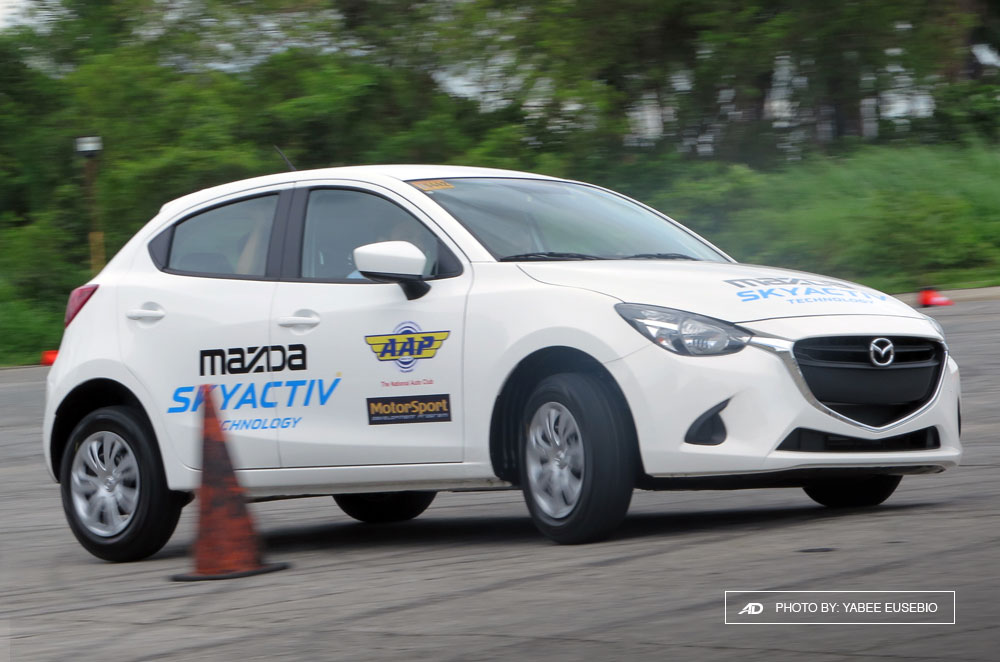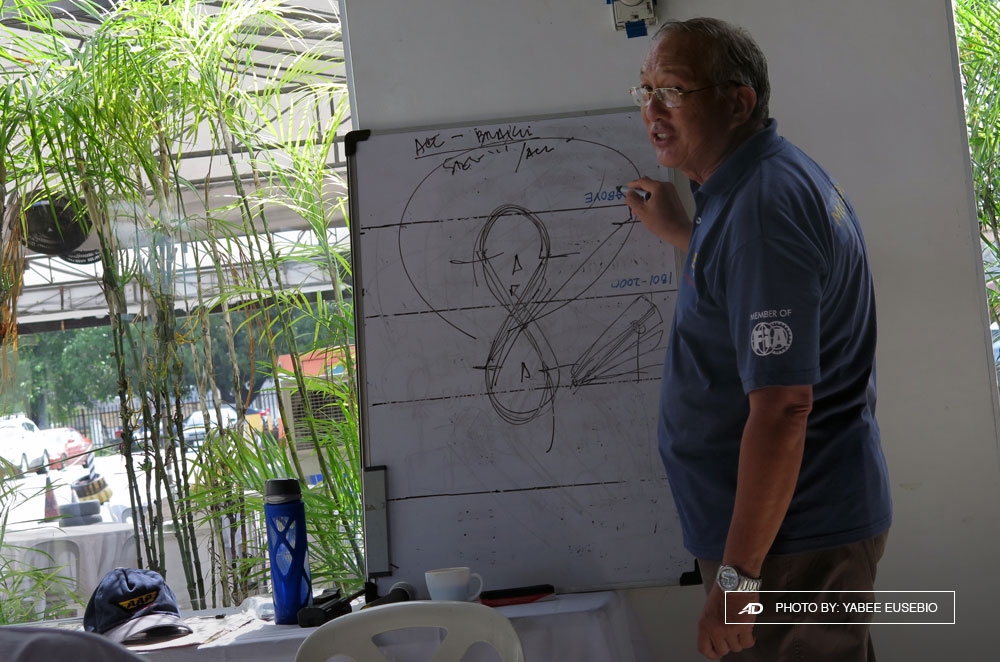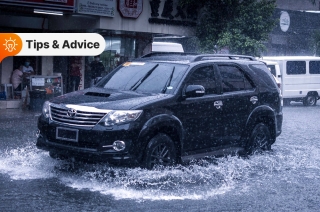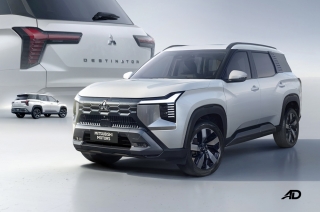
The Automobile Association of the Philippines (AAP) has set out on a mission of finding the next young local racing talent. To do this, they created a grassroots training platform called the Motorsport Development Program (MSDP) to hone the skills of young driving enthusiasts aged 16 to 19 years old.
Thanks to Mazda Philippines, MSDP’s official partner, this author was able to experience the rigorous training these youngsters go through.
Learning from champions
During the whole day event, participants sit in a classroom setting and learn from decorated drivers such as Milo Rivera, Ivan Isada, and 10-time National Rally champion Vip Isada. It tackled 4 hours worth of the basics of driving and racing.
The class started out with how to assume the correct seating position, as well as accelerating and stopping with minimal distance. We were instructed to match the engine revs on the tachometer with the level of the gas pedal to accelerate smoothly. On the other hand, we had to learn how to step on the brake pedal firmly and gently release it to avoid rocking the car.
The lecture then progressed into more complicated driving techniques such as weight transfer and the racing line. This is an important fundamental concept in racing as it affects how much traction a car has on a corner and the speed a driver can take while turning.
Weight transfer can be defined as the increase/decrease of load on each wheel, depending on the motion of the vehicle.
In a cornering scenario, most of the car’s weight is transferred to the front while braking. The driver must distribute the weight before turning by gently releasing the brake pedal and slightly tapping the gas as too much load on the front wheels will cause understeer.
While turning, latitude forces act upon the car throwing the weight on the outside wheels and then onto the rear as it exits the corner. If the driver gets it right, he/she will have optimum speed and traction possibly giving an advantage over the competition.
To maintain the highest speed and grip possible on a corner, the driver must take the racing line. During the corner entry, the driver brakes and balances the car before turning. As the car hits the apex, more often than not, the geometric center of a corner, the driver must start to unwind the steering wheel and get the power down to obtain maximum exit speed.
Hands-on experience
After each class, participants got to try out what they learned using their own vehicles on a makeshift course set-up by the AAP. Fortunately, Mazda Philippines lent us the new ‘2’ SkyActiv with G-Vectoring Control (GVC).
During the 1st exercise, we applied the theoreticals we learned for rapid accelerating and braking. We were instructed to plant the right ankle in the middle of the gas and brake pedals to allow us to pivot with ease and so that we can brake/accelerate smoothly, while the left foot was anchored on the dead pedal to help us brace for the force when decelerating. It took this author a couple of tries to accelerate and brake without jerking the car, especially under braking.
The next course was probably the hardest part. We had to manage the pedal and steering wheel to learn how to transfer the weight of the car by stepping on the gas, braking, and turning at the right time in a slalom and figure-8 course. It was a handful trying to feel how the weight of the car transferred from side-to-side, while concentrating on the course itself. Luckily, we were able to get it right.
The day was culminated by combining all exercises into 1 challenging track. It was composed of 2 90-degree left-hand turns followed by the figure 8, then the slalom course on to the finish line. It was here where we had to use all that we had learned that day; accelerating/braking quickly and smoothly, weight transfer, and using the racing line.
I was nervous off-the-line. But the lessons taught to us that day gave me the confidence to control the car throughout the track with ease, especially during the slalom part. When I crossed the finish line, I felt that I had become a better driver with these newly acquired driving techniques. However, I know that there’s still so much to learn.
The MSDP is a good way to teach the basics of racing to young and even older drivers. It equips them with the necessary knowledge, discipline, and experience to make them better drivers on and off the track.
The program is free of charge for participants aged 16 to 19 years old, while those older will have to pay P2,500. It consists of 9 modules, which includes 3 to 4 hours worth of lectures and 4 to 5 hours of practical exercises. Interested parties may reach out to the official Facebook page of the MSDP for more information.
Latest Features
-
Tire tread patterns: What they are and why they matter to your car / Tips & Advice
Tire tread patterns aren’t just for looks; they also determine traction, handling, and overall performance on the road.
-
Five things to check on your car before driving during the rainy season / Featured Article
Planning to drive in the rain? Make sure to inspect these five vital parts of your car before hitting the road.
-
What we can expect from the upcoming Mitsubishi Destinator / Featured Article
The Destinator debuts this July 23, and according to Mitsubishi, it’s more than just an XForce with extra seats.
Popular Articles
-
Cheapest cars under P700,000 in the Philippines
Jerome Tresvalles · Sep 02, 2024
-
First car or next car, the Ford EcoSport is a tough package to beat
Jun 18, 2021
-
Car Maintenance checklist and guide – here’s everything you need to know
Earl Lee · Jan 12, 2021
-
Most fuel efficient family cars in the Philippines
Bryan Aaron Rivera · Nov 27, 2020
-
2021 Geely Okavango — Everything you need to know
Joey Deriquito · Nov 19, 2020
-
Family cars in the Philippines with the biggest trunks
Sep 20, 2023
-
Head to head: Toyota Rush vs. Suzuki XL7
Joey Deriquito · Oct 28, 2020
-
Why oil changes are important for your car
Earl Lee · Nov 10, 2020
-
2021 Kia Stonic — What you need to know about it
Joey Deriquito · Oct 16, 2020
-
Top 7 tips for buying a used car in the Philippines
Joey Deriquito · Nov 26, 2020









